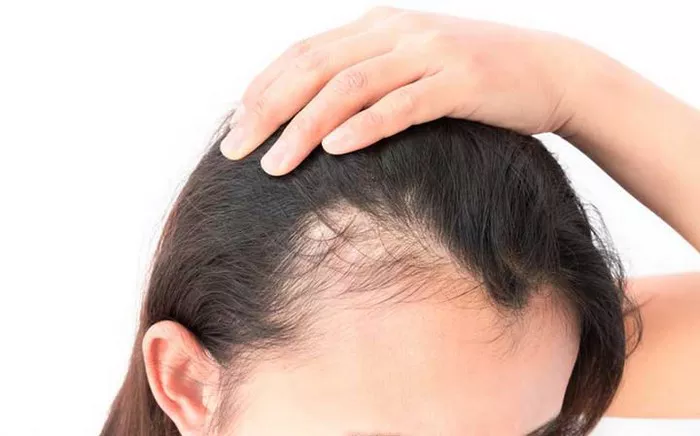Hair loss is a concern that affects individuals globally, and hormonal imbalance is recognized as a significant contributor to this issue. Understanding the intricate relationship between hormones and hair health is essential for exploring potential strategies to reverse hair loss caused by hormonal imbalances.
Hormones and Hair Health:
Hormones play a crucial role in regulating various physiological processes, including hair growth. Imbalances in hormones, such as androgens, estrogen, and thyroid hormones, can disrupt the natural hair growth cycle, leading to hair loss. Addressing the root cause of hormonal imbalance is paramount in the quest to reverse hair loss.
Identifying Hormonal Causes of Hair Loss:
Different hormonal imbalances can contribute to hair loss. Androgenetic alopecia, often linked to elevated levels of dihydrotestosterone (DHT), is a common cause of hair loss in both men and women. Hormonal fluctuations during pregnancy, postpartum, and menopause can also impact hair health. Additionally, thyroid disorders, particularly hypothyroidism and hyperthyroidism, are known culprits in triggering hair loss.
Addressing Androgenetic Alopecia:
In cases of androgenetic alopecia, where increased DHT levels contribute to hair loss, several treatment options are available. Medications such as finasteride and minoxidil are commonly prescribed to inhibit DHT production and stimulate hair follicles. However, these treatments may not be suitable for everyone, and consultation with a healthcare professional is essential to determine the most effective and safe approach.
Hormonal Changes in Women:
Women often experience hormonal fluctuations during various life stages, such as pregnancy, postpartum, and menopause. These changes can lead to temporary or prolonged hair loss. In some cases, hormone replacement therapy (HRT) may be recommended to restore hormonal balance and mitigate hair loss. It’s crucial for women to consult with healthcare professionals to explore suitable HRT options and address individual health needs.
Nutritional Support for Hormonal Balance:
Balanced nutrition is fundamental for overall health, including hormonal balance. Nutrient deficiencies can exacerbate hormonal imbalances and contribute to hair loss. Incorporating a diet rich in vitamins, minerals, and antioxidants supports hormonal health. Essential nutrients such as iron, vitamin D, and omega-3 fatty acids are particularly important for maintaining healthy hair follicles.
Lifestyle Modifications:
Adopting a healthy lifestyle can positively impact hormonal balance and, subsequently, hair health. Regular exercise, stress management, and sufficient sleep contribute to overall well-being, helping to regulate hormones and reduce the risk of hair loss. Stress reduction techniques such as meditation, yoga, and deep breathing exercises are valuable tools in maintaining hormonal equilibrium.
Thyroid Disorders and Hair Loss:
Thyroid hormones play a crucial role in metabolism and can influence hair growth. Both hypothyroidism and hyperthyroidism have been associated with hair loss. Treating the underlying thyroid disorder with medications and lifestyle modifications can help restore hormonal balance and, in turn, improve hair health.
Topical Treatments and Hair Care:
Topical treatments, such as shampoos and serums containing minoxidil, can be effective in stimulating hair follicles and promoting regrowth. These products are often recommended for individuals experiencing hormonal hair loss. Additionally, adopting a gentle and nourishing hair care routine, avoiding excessive heat styling, and protecting hair from environmental damage contribute to overall hair health.
Professional Consultation and Personalized Approaches:
For individuals dealing with hormonal hair loss, seeking guidance from healthcare professionals is crucial. Hormonal imbalances are complex, and a thorough assessment is necessary to determine the most suitable treatment plan. Dermatologists, endocrinologists, and other specialists can provide personalized insights based on individual health profiles.
Patience and Consistency:
Reversing hair loss due to hormonal imbalance is a gradual process that requires patience and consistency. It’s important to manage expectations and understand that results may vary from person to person. Consistent adherence to prescribed treatments, lifestyle modifications, and regular follow-ups with healthcare professionals contribute to the effectiveness of the chosen interventions.
See Also: Can Multivitamins Halt Hair Loss: Things You Need To Know
Conclusion:
While hormonal imbalances can contribute to hair loss, the potential for reversal exists through a multifaceted approach. Addressing the root cause, whether it be androgenetic alopecia, hormonal fluctuations in women, or thyroid disorders, involves a combination of medications, lifestyle modifications, and topical treatments. Seeking professional guidance, adopting a nutrient-rich diet, and maintaining a healthy lifestyle contribute to the overallsuccess of reversing hair loss caused by hormonal imbalance. With a comprehensive and personalized approach, individuals can unlock the potential to restore hair health and regain confidence in their appearance.


